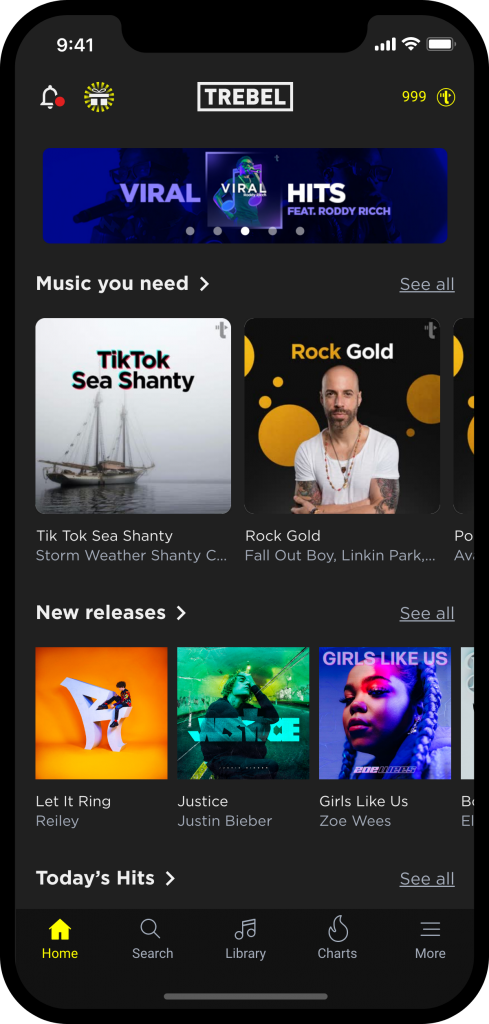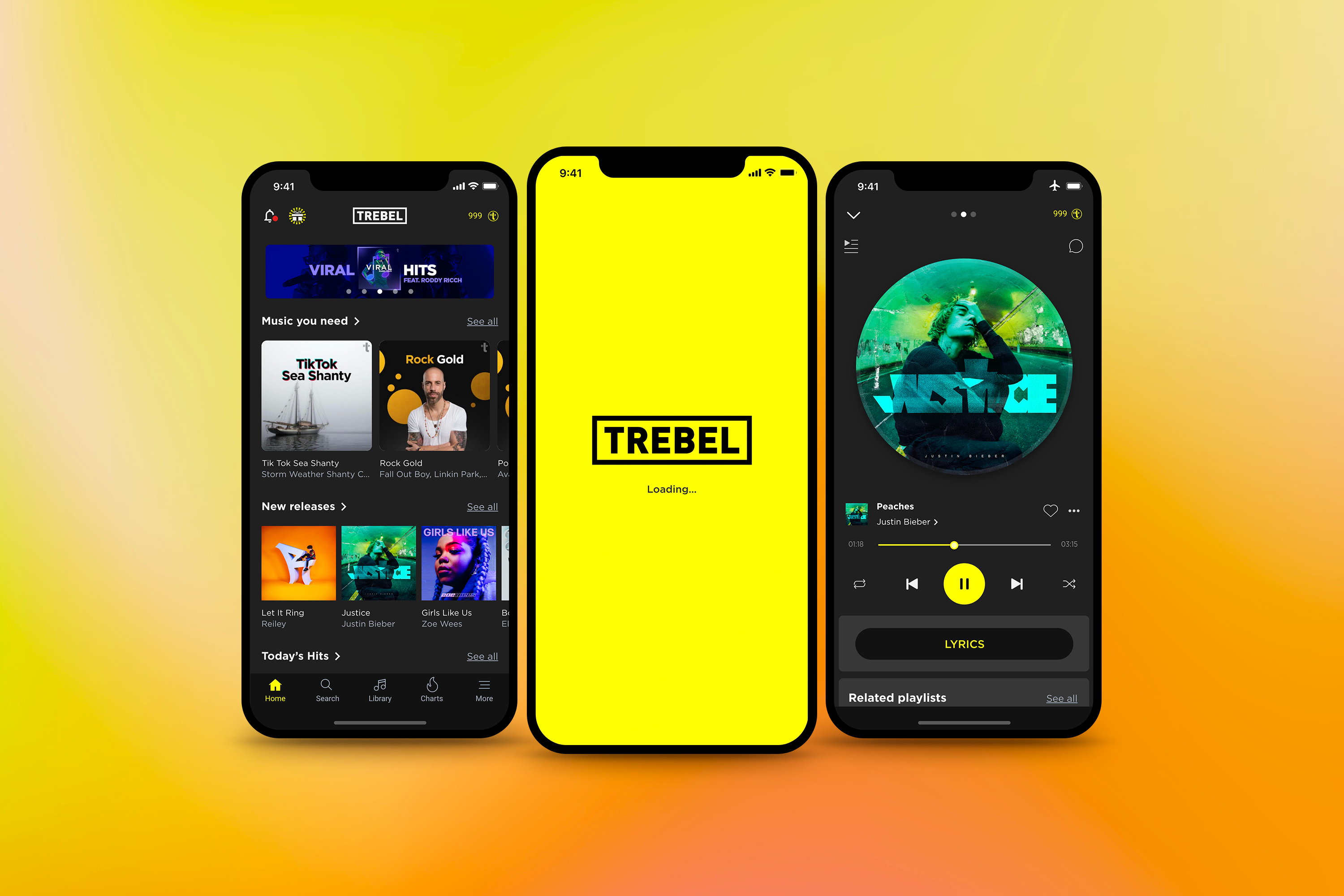New free music download app Trebel aims to end music piracy
Image Credit: Trebel Music
Trebel Music, a streaming service that lets users download music for free, has just announced it’s going public.
New free music app Trebel launched in 2018 for people who “will not – or cannot – pay for music subscriptions.” Whilst the colossal rise of Spotify and other music streaming platforms might suggest that the dark days of music piracy are over, infuriatingly that is not the case. Illegal downloading and stream-ripping are still present across swathes of the internet. Trebel Music markets itself as an ethical solution – but how does it work?
Connecticut-based Trebel, which has 3.2 million monthly active users, sells itself as the only music app that lets users legally download songs to smartphones and tablets for offline listening. The available library of 15 million licensed songs comes from relationships with the “Big Three” record labels (Sony Music Entertainment, Warner Music Group, and Universal Music Group) as well as independent distributors.
Revenue is generated by Trebel Music through video and audio advertising and brand experiences like online surveys, as well as virtual in-app purchases. It cements itself around the idea that “on-demand music is more than entertainment; it has healing powers for fans, it is the only source of income for most artists, and it is the most effective connective tissue between advertisers and consumers who develop brand loyalty around the music and artists they love.”

Trebel says that they still believe that anyone who is able to pay for music should, but that they’ve spotted an opportunity in their demographic and also to fill a gap in offline listening.
Over three billion people who stream music are not able or unwilling to pay for music, Trebel says, and this target audience “primarily uses music piracy sites and apps, and video-sharing platforms such as YouTube, both of which deliver sub-optimal experiences for users and inequitable monetization for content owners.” Trebel wants to monetise these users for artists’ sake, using ad-supported listening to generate revenue.
Now filing to go public, Trebel Music indicates it will follow a similar business model to Spotify – not seeking short-term revenue but pushing for an expansion model, ultimately expanding their content to include podcasts, audio books and cartoons.
The company say they have a unique space in the streaming service world with their focus on smartphones and tablets, believing that “anyone with a smartphone is a music fan and a potential user of Trebel Music.” Interestingly, in the future the app will include gamification features such as musical micro-games and premium features like customisable avatars.
If, as Trebel claims, its typical target consumer can’t currently be tempted away from illegal downloads to support artists through streaming platforms like Apple Music, Trebel Music hopefully will offer unique features that make it a more tempting alternative offer – and a way for artists to get the money they deserve.
